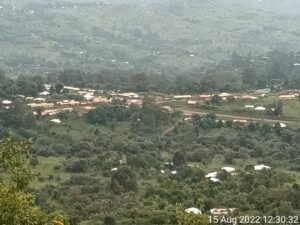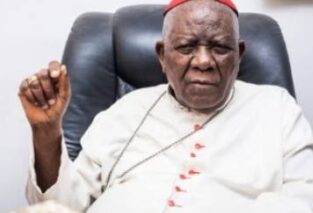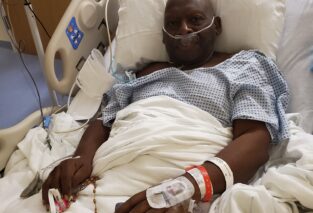Maya Angelou, the American poet, memoirist, and civil rights activist (April 4, 1928 – May 28, 2014), once said, ‘The ache for home lives in all of us, the safe place where we can go as we are and not be questioned.’
I wonder if she had me in mind when she penned those words for, residing in the depths of my being, is a profound longing for a home which, unfortunately, is no more. The purveyors of death and destruction have, for the past several years, initiated a senseless parade of mayhem that has wreaked havoc across swathes of territory in northwestern Cameroon, a place I once called home. Such carnage notwithstanding, childhood memories, solidly etched into the walls of our mud-brick house in the village of Nkar, still occasionally visit the edges of my mind. I still see pieces of my identity hanging from every corner. My umbilical cord lies buried under one of the wooden pillars supporting the roof of Mama’s kitchen.

That place once served as a haven for me, a refuge from the challenges and uncertainties of the outside world. It was there that I once felt secure and protected. Up until a few years ago, my family and I would occasionally retreat from the madding crowd of the city of Douala, with its suffocating heat, malaria-pregnant mosquitoes, and ear-splitting noises, to the cool, mosquito-and-noise free highlands of our village of Nkar, a place we once called home, but that is now gone forever.
It is in Nkar that the good Lord, in his imponderable wisdom, decided to plant me. There, life’s complexities melted like butter into the warmth of the simplicity of homes from which, for the most part, rose echoes of laughter, and the sound of shared joy. Those memories are deeply buried in the recesses of my mind, untarnished by the passage of years. I still yearn for a genuine connection with my loved ones, many now gone forever.
The ache for home, as Maya Angelou says, truly lives in each of us because it is there that we can go without fear of judgment or criticism, and be accepted for who we are. My home in Nkar was where, from an early age, I found solace without having to defend or explain myself because my identity was accepted without scrutiny — my weaknesses notwithstanding. There, I did not need to hide behind a mask or conform to external expectations. Oh, how the ache for that home, that is no more, still haunts my mind!
In my quest to recreate the image of that home as I once knew it, I often close my eyes and let a visual tapestry flash through my mind. In such fleeting moments, I hear the laughter of the kids we once were, as we played in the rain, coming back home, drenched from head to toe, with muddy hands and feet, and waiting for Mama’s stern rebuke – which she knew would not be obeyed — never to play in the rain again, so as not to risk catching a fever.
The ache for a home gone forever has become a sad reminder of the past but it has also served as a driving force propelling me forward. I now use the enduring power of connection to move forward with life in the port city of Douala, where my family and I are now planted. Douala is now where we call home. It is where fate has planted us physically, and we have mentally accepted to reside, and bloom. Learning to bloom where one is planted is the best way to build a good home to go back to at the end of a long and tiring day, and feel welcomed.


